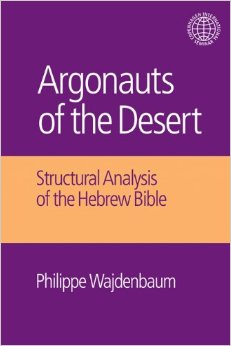 I have made a correction to a serious error in my recent post How Plato Inspired Moses: Creation of the Hebrew Bible. In that post I took credit for identifying many parallels between the Hebrew Bible and Plato’s Laws prior to reading Russell Gmirkin’s book. I should have acknowledged — and I have now made the correction — that my interest in Plato’s Laws was sparked by Philippe Wajdenbaum’s Argonauts of the Desert: Structural Analsysis of the Hebrew Bible.
I have made a correction to a serious error in my recent post How Plato Inspired Moses: Creation of the Hebrew Bible. In that post I took credit for identifying many parallels between the Hebrew Bible and Plato’s Laws prior to reading Russell Gmirkin’s book. I should have acknowledged — and I have now made the correction — that my interest in Plato’s Laws was sparked by Philippe Wajdenbaum’s Argonauts of the Desert: Structural Analsysis of the Hebrew Bible.
The Bible’s roots in Greek mythology and classical authors: Isaac and Phrixus (2011-03-11)
Greek Myths Related to Tales of Abraham, Isaac, Moses and the Promised Land (2011-03-16)
Anthropologist spotlights the Bible and Biblical Studies (2011-12-19)
Anthropologist’s analysis of the Bible and of Biblical Studies as a variant of the Bible’s myth (2011-12-20)
Argonauts of the Desert: a defence of an anthropologist’s interpretation of the Bible (2011-12-23)
Bible Origins — continuing Wajdenbaum’s thesis in Argonauts of the Desert (2011-12-24)
Who wrote the Bible? Rise of the Documentary Hypothesis (2011-12-25)
Who wrote the Bible? (2) Challenging the Documentary Hypothesis (2012-01-08)
Bible: composed as a reaction against Greek domination? (2012-01-09)
Did a Single Author Write Genesis – II Kings? (Demise of the Documentary Hypothesis?) (2012-10-18)
Collapse of the Documentary Hypothesis (1) & Comparing the Bible with Classical Greek Literature (2012-11-06)
Biblical Scholars, Symbolic Violence, and the Modern Version of an Ancient Myth (2012-11-26)
New Understandings of the Old Testament: Jacques Cazeaux (2012-12-02)
Castration of Ouranos and the Drunkenness of Noah (2014-04-29)
There are overlaps between Gmirkin’s and Wajdenbaum’s theses, but there are also a number of incompatibilities. I think Wajdenbaum’s view that a single author was responsible for the Primary History of Israel (Genesis to 2 Kings) faces a number of daunting hurdles. But both authors do raise serious questions and give us much to think about.
